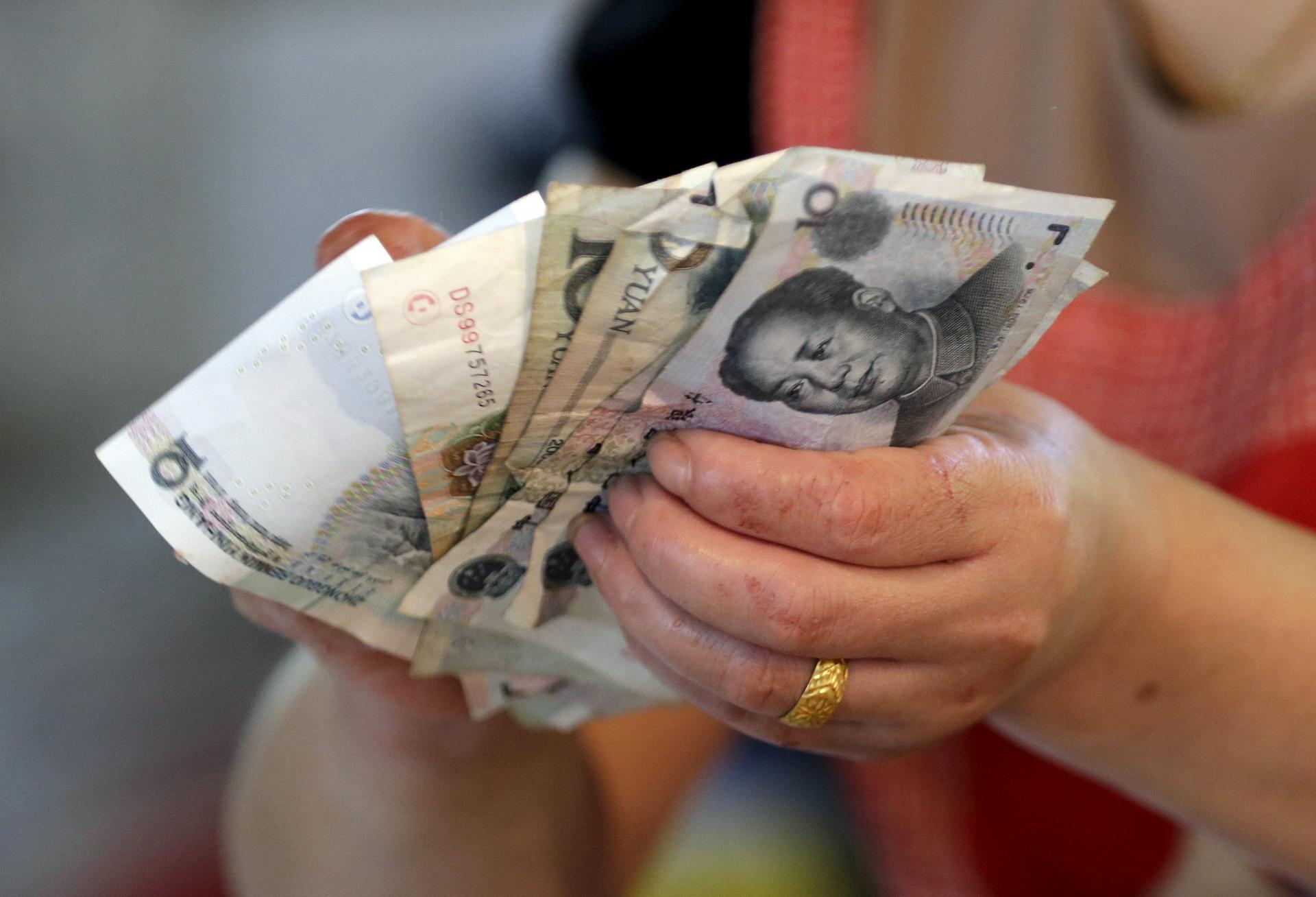A vendor holds Chinese yuan notes at a market in Beijing.
China has allowed its currency, the renminbi, to weaken further — leading to renewed turmoil in global financial markets.
The People's Bank of China gave permission for its currency to be traded at a reduced rate. The currency will also be managed with a new system that takes account movements on the foreign exchange markets.
European and Asian equity markets were hit hard by the move. And the measures have sparked fresh concern in the United States, which has long said an undervalued yuan gives an unfair advantage to Chinese exporters over foreign competitors.
“It’s significant on several different levels,” says Ed Wong, Beijing bureau chief for The New York Times. “This is the biggest shift in currency since China began using this currency system in the 1990s.”
“Domestically speaking,” adds Wong, “it’s a sign that Chinese leaders are very worried about the Chinese economy. The fact that they would do this shows a certain level of desperation.”
“Earlier this summer,” he points out, “we had a big stock market crisis in China.” That crisis cost a lot of small investors a large proportion of their savings. That in turn has encouraged many Chinese households to cut their spending.
And now says Wong, “there are questions about whether the Chinese growth rate will meet its 7 percent expectation this year. Clearly by devaluing the currency in such a dramatic fashion, Chinese leaders are hoping to prop up the export industry.”
A cheaper currency will allow Chinese companies to sell their goods and services for cheaper overseas. But it will also make it more expensive for foreign companies to sell their goods and services in China.
The United States has been pushing China for years to allow its currency to find its natural market value, instead of being kept at artificial levels. It’s not clear if the changes this week signal a shift in that direction, or if it’s just a short term adjustment. It’s also not clear if Chinese authorities may devalue the currency further in coming days.
That uncertainty is rattling global markets.
Wong says government policy is opaque because of the government’s roots in the Communist Party system. “When political decisions are made in China,” explains Wong, “it’s very difficult to pinpoint the exact motivations for that. They often come as surprises. There’s very little in the way of leaks or a heads-up or foreshadowing of policies coming down the road. So that’s why this took everyone by surprise.”
The story you just read is available for free because thousands of listeners and readers like you generously support our nonprofit newsroom. Every day, reporters and producers at The World are hard at work bringing you human-centered news from across the globe. But we can’t do it without you: We need your support to ensure we can continue this work for another year.
Make a gift today, and you’ll get us one step closer to our goal of raising $25,000 by June 14. We need your help now more than ever!
